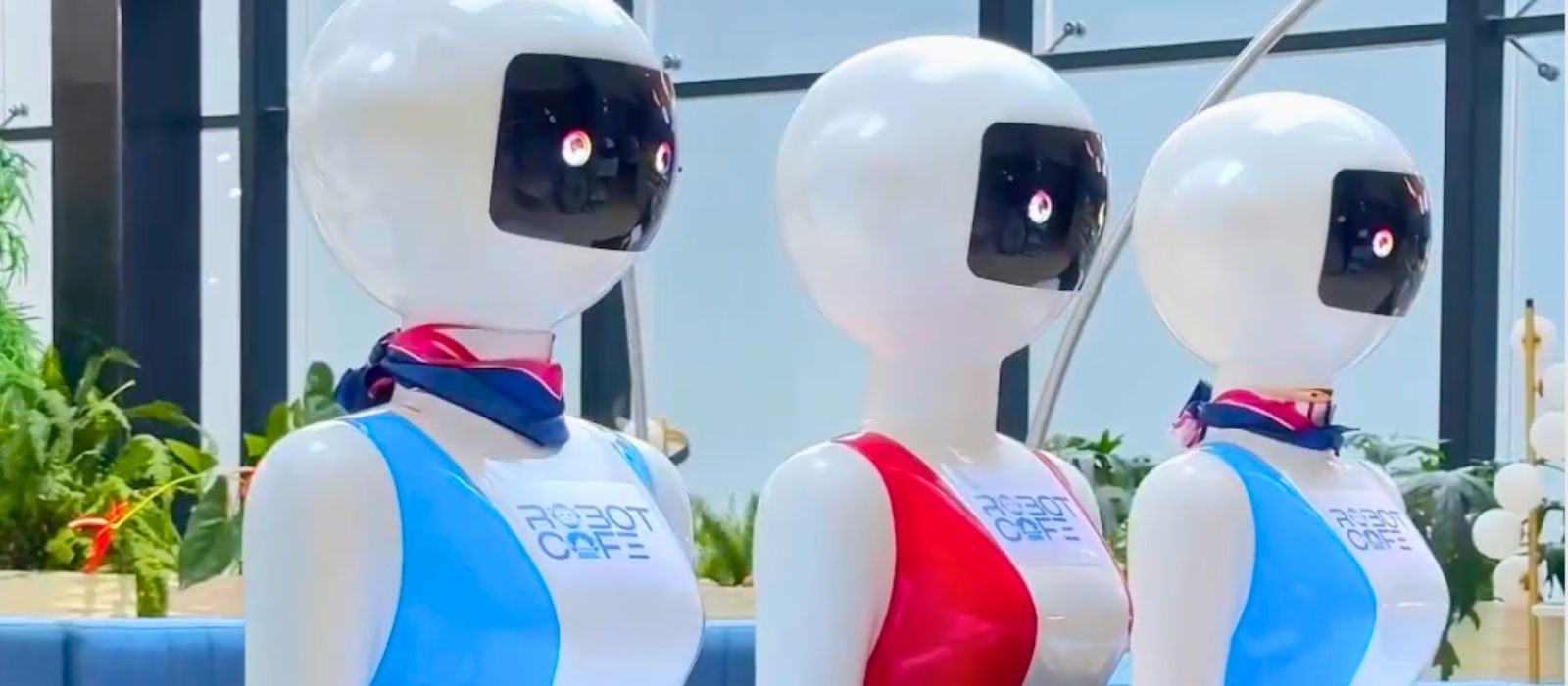
In the busy nature of Kilimani, Nairobi, a new dining experience is taking shape that may forever change the landscape of hospitality in Kenya. The restaurant named “Robot Cafe,” opened its doors on June 16, 2024, and quickly became a sensation among locals and tourists alike.
As patrons entered the sleek establishment, they were greeted not by human hosts but by friendly robots gliding effortlessly across the floor. The concept of robot waitresses might have seemed like something out of a science fiction novel just a few years ago. However, at Robot Cafe, this futuristic vision has become a reality.
Each robot was equipped with advanced artificial intelligence and self-driving technology that allows them to navigate through the crowded space with remarkable agility. They could dodge tables and chairs while carrying trays loaded with delicious food and drinks.
As customers settle into their seats, they marvel at how these robotic servers move gracefully from the kitchen to their tables. The robots are designed not only to deliver meals but also to enhance the overall dining experience. With built-in speakers, they welcome guests warmly upon arrival and even sing happy birthday when celebrating special occasions.
The general manager of Robot Cafe, Mohammed Abbas explained that each robot cost around £4,000 which equated to about one year’s salary for a human employee. This investment allowed for significant savings in labour costs while maintaining high service standards. However, Abbas acknowledged that human staff were still essential for kitchen operations and other tasks requiring emotional intelligence and creativity.
Despite their many advantages, these robotic waitresses face challenges. Their limited vocabulary means that interactions are basic; they greet customers but struggle with more complex conversations. Additionally, each robot requires two hours of charging to operate for five hours—an aspect that necessitated careful scheduling during peak dining times.
The introduction of robots as wait-staff marked a significant shift in Nairobi’s hospitality sector and served as a microcosm for broader technological advancements across Africa. High-tech hotels began adopting similar innovations like facial recognition check-ins and AI-driven customer service solutions aimed at enhancing guest experiences while reducing operational costs.
As Nairobi embraced this new era of dining powered by robotics and artificial intelligence, it sparked conversations about the future relationship between humans and machines in service industries. While some expressed concerns about job displacement due to automation, others recognized that technology could complement human efforts rather than replace them entirely.


